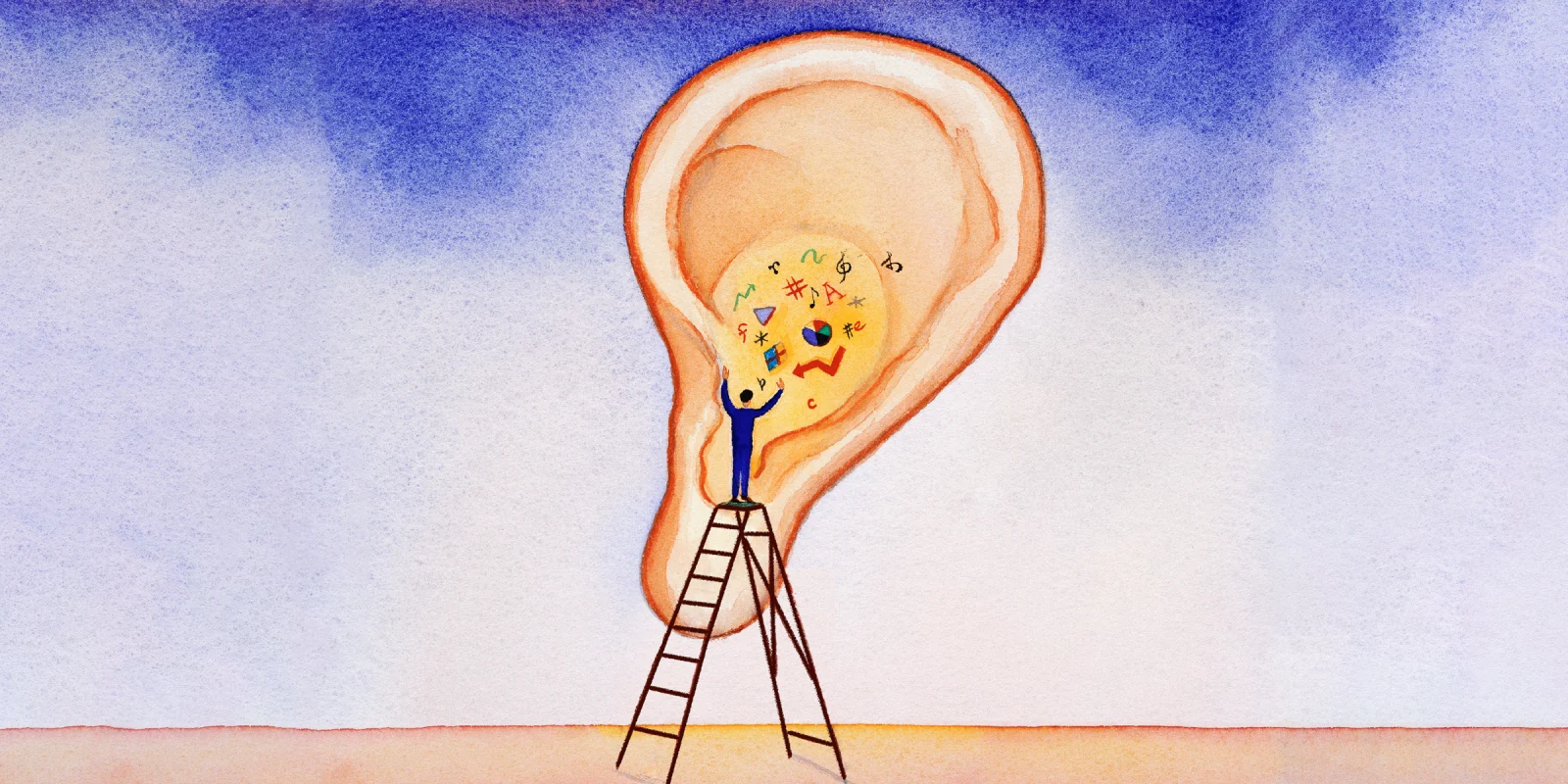Before returning to my fourth year of medical school, I spent a year listening.
Last spring, I interviewed a caregiver of an older woman with dementia. That day, I swapped my stethoscope for a pair of headphones, laptop for a notebook, and white coat for a recorder. In her home, I pressed record, and she recounted to me the final weeks of her mother, the recipient of her care. I asked about her mother’s memory disorder, an episode of delirium, and the hospice stay that followed. She opened up about the burden of caregiving, her pangs of guilt about not recognizing her mother’s change in baseline sooner, and ultimately, her profound gratitude for her family’s experience at the hospice center. I featured her story in one of the episodes for my podcast, Firsts, which highlights first-time experiences during medical training. I love hearing people tell their stories – whether inside the hospital, at the clinic, or at their bedside at home. Experiences like these will help me be a better doctor.
I also sharpened skills that I would take with me into the clinical world. For every interviewee, I “chart-reviewed” by reading their recent papers or essays, finding out their educational or professional background, and summarizing relevant information in short bios. I wrote out questions that would elicit answers that I couldn’t find anywhere else. When it came time to interview, I also made sure to listen in the moment: I had stories arise from something that an interviewee said under their breath or as an aside in the middle of a response to another question. In medicine, a detail in a history can sometimes change management. I got to record each interview, which granted me a unique opportunity to listen back to my “encounters.” I could figure out better ways to ask questions, or review where I missed a chance to ask deeper questions.
Each week, I “rounded” on a new interviewee: a flight attendant, resident doctors, and NP at a hospice center; a computer scientist, a health policymaker in New Zealand, and a medical student who didn’t match. I learned to speak with folks from all walks of life, and I hope to bring my interviewing experience into my medical practice.
During my enrichment year, as a Multimedia Fellow at STAT, I worked on Color Code, a podcast series on racism in medicine. Over eight episodes, our team launched a narrative-style podcast that tackled some of the most challenging topics in medicine, such as the Black maternal mortality crisis and racial blindspots in health care algorithms. Weaving interviews into scripts, I witnessed how researchers in Los Angeles, activists in the Bronx, and patients in Indiana worked in sync to improve care. This formative experience illuminated that well-researched, balanced, public-facing storytelling can ignite important conversations, provide new insights, and help move the needle on health disparities.
My fellowship at STAT also allowed me to write as a science reporter, where I focused on new neurology and psychiatry studies, as well as the experiences of doctors-in-training. My first piece was about a study that found “border and event cells” – two new neurons, identified for the first time with electrodes in patients with treatment-resistant epilepsy. In the article, I tapped into metaphors and analogies to share complicated neuroscience research with a public audience. As a doctor, I hope to meet that same challenge of effective science communication with patients, families, and caregivers.
In the past several months, many moments have reminded me of times I’ve spent with patients. In my interview with the caregiver of a person with dementia, I left behind the tools and garb of a doctor, but I kept the intangible things that are important to both medicine and journalism: empathy, curiosity, and a sense of gratitude for sharing moments of vulnerability with another human being. Storytelling and listening are cornerstones of medicine, and I’m committed to their mastery.
Whether inside or outside the hospital, I know each person has a story worth telling. In medical media, my account of someone else’s story ideally can shed light on an issue, be a platform to advocate for patients, and ultimately contribute to improving care. In clinical practice, knowing a person’s story allows me to help them heal. With every patient I meet, I will continue to listen with my heart and my mind. Their voice and their story will be heard, and they will not walk their journey alone.
If you took a gap year, what did you study? If you didn't, do you wish you had? Share in the comments.
Amador (“Tino”) Delamerced is a medical student at the Warren Alpert Medical School of Brown University. He is the producer of Firsts, a podcast series about first-time experiences during medical training. Tino is a 2021–2022 Doximity Op-Med Fellow.
Image by Stockbyte / Getty






